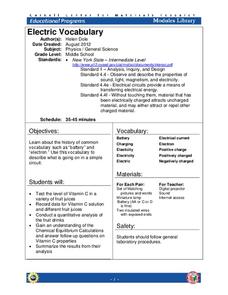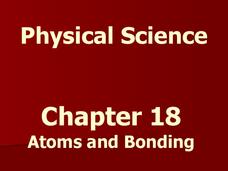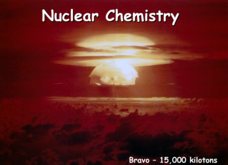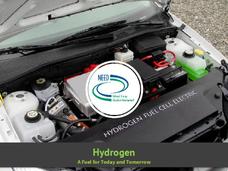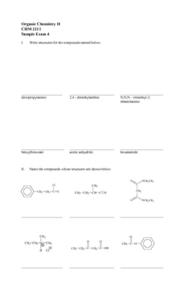Curated OER
Atoms, Ions and Formula Basics Make-up Test
Using a copy of the periodic table, chemistry test takers fill in a chart with element name, chemical symbol, atomic number, atomic mass, and numbers of subatomic particles. They define subatomic particles, draw atom models, explain...
Curated OER
Photosynthesis: Life from Light and Air
All aspects of the photosynthesis process, and the way that plants have adapted with specializations are detailed here. The diagrams and info-graphics will be useful to your AP biology class. It could also be used as a review...
Curated OER
Unit 2 ~ Atomic Structure
As an atomic structure reference and review tool, this handout fits the bill. The first page provides definitions and tables of orbitals, electrons, and energy levels. The second page is an opportunity to practice determining numbers of...
Curated OER
Atoms, Molecules and Ions
Atomic theory, experiments that contributed to our knowledge of matter, atomic structure, isotopes, and ions are covered in these 33 slides. Quality diagrams and labeled charts will help activate understanding. The presentation concludes...
Curated OER
Magnetic Fields and Forces Homework/Electromagnetic Induction Homework
Here are two electromagnetism homework assignments rolled into one. The first eight practice problems deal with the magnetic field and magnetic force exerted by current-carrying wires. The second set of seven problems are specific to...
It's About Time
What Determines and Limits an Atom's Mass?
Provide learners with the tools to further understand nuclear energy and isotopes. Young chemists investigate the components of an atom's nucleus, use symbols to represent various isotope forms, and use the percent abundance of an...
Cornell University
Electric Vocabulary
Practice electric vocabulary using multiple methods. Learners begin by watching a video that explains vocabulary related to electric currents. They match vocabulary cards to practice and then create an electric circuit. Using the...
NASA
A Different Perspective
What can we learn from the data? Young scholars analyze actual solar data to answer specific questions. The activity presents an opportunity for an open-ended investigation of the data to conclude a five-part series on solar winds.
Curated OER
Scientific Notation
Review conversion of decimal numbers into SN form with these examples of common astronomical applications and quantities. Young learners rewrite those numbers with scientific notation and with the correct units. The answers are available...
University of Georgia
Bag O' Isotopes
Accommodate your chemistry class with an experiment that is both entertaining and educational. Through the activity, blossoming chemists perform calculations on various isotopes, as represented by beans and legumes, to obtain...
Flipping Physics
AP Physics 1: Electrostatics Review
AP Physics scholars will be excited to find this review of electrostatics as they prepare for the AP exam. Fast-paced, interesting, and comprehensive, the video also includes test-taking tips and common misconceptions.
Mr. E. Science
Atoms and Bonding
I don't trust atoms because they make up everything. Budding scientists learn about famous scientists connected to atomic models, chemical, ionic, and hydrogen bonds. The presentation also presents how to count atoms...
Science Geek
Nuclear Chemistry
Which bichemicals wash up on shore? Nucleotides! Presentation covers alpha, beta, and gamma radiation. Includes a comparison of fission versus fusion. Presentation is the second in a five-part series.
Urbana School District
Forces
Is your class struggling with Newton's Second Law? Then show them a presentation that covers everything physics scholars need to know about forces. Starting with gravity, the slides focus on Newton's Laws of Motion, and end with an...
National Energy Education Development Project
Introduction to Hydrogen
Every region has a renewable resource that can be used to make hydrogen. But, what is hydrogen and why can it be used as an energy source? Find out with a presentation that answers these questions and then discusses where hydrogen is...
American Chemical Society
Represent Bonding with Lewis Dot Diagrams
Lewis dot diagrams, Lewis dot structures, and electron dot diagrams are all the same thing. Young scientists learn how to draw Lewis dot diagrams and come to understand how dots and dashes represent valence electrons and ionic or...
Bowels Physics
Magnetic Fields and Forces
Every knows that opposites attract! Here's a presentation that uses this background knowledge to explain magnetic fields and forces. The resource also explains the shape of magnetic fields and how to determine the direction of forces.
Purdue University
Design of a Door Alarm
How does electricity work? Budding scientists explore the concepts of electrical currents and open and closed circuits with class discussion and a hands-on activity using a battery to turn on a light bulb. Learners also make predictions...
American Museum of Natural History
Light Quest
Grab a partner and shed some light on light. A remote learning resource has scholars play a board game to answer trivia questions about light. They also read about how Einstein contributed to the understanding of light as both a wave and...
Curated OER
Finding Oxidation States
In this chemistry worksheet, learners examine the oxidation state in order to apply it in the laboratory setting. The sheet includes in depth background information.
Curated OER
Organic Chemistry II
In this chemistry worksheet, students write the structures for the compounds illustrated on the sheet. Then they name the compounds whose structures are illustrated in part two. Students also fill in the blanks to complete the paragraph...
Curated OER
Organic Chemistry II Exam 4
In this chemistry worksheet, students write the structures for the compounds listed at the top of the sheet. Then they name the compounds whose structures are illustrated. Students also write the mechanism for the reaction of methyl...
NASA
Atomic Numbers and Multiplying Fractions
Here is a way for beginning chemists to review the skill of multiplying fractions! A segment of the periodic table of elements is presented at the top of the page, from which learners obtain the atomic number to use in six calcualtions....
Curated OER
Summary of Organic Reaction Mechanisms Needed for AS Chemistry
Advanced chemistry courses typically cover organic reactions. On this reference sheet, the five types of organic reaction mechanisms are explained and an example is shown. For each, there is also a diagram of the chemical reaction...
Other popular searches
- Protons Neutrons Electrons
- Protons, Neutrons, Electrons
- Protons, Neutron, Electrons
- Protons and Neutrons
- Protons, Electrons, Neutrons
- Electrons, Neutrons, Protons
- Electrons and Protons
- Atoms and Protons
- Protons Neutrons, Electrons
- Atoms Electrons Protons








